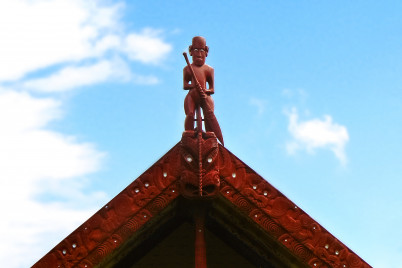Today we are happy to announce the recipients of our 2019 Ngā Kanohi Kitea Full Project grants. These community grants provide an opportunity for iwi, hapū and community groups to investigate a well-defined area of Māori health need or gain.
Dr Lily George, Waikare Marae Trustees
Ngā waka hauora: Community development through creating vehicles of wellbeing
18 months, $199,220
Lay summary:
The Te Kapotai people of Waikare (Tai Tokerau) have a history of cultural decimation and deliberate resource depletion resulting in an intergenerational and cumulative trail of trauma that has trickled down the generations, resulting in the negative situations too many of our whānau live within today. In recent years Te Kapotai has experienced a resurgence of cultural pride with the restoration of their history through the Treaty claims process, with a rekindling of attachment to whakapapa, whenua, hapū/iwi, and tangata. Nevertheless, many challenges remain, such as suicidal ideation and selfharming; under-employment and lower levels of educational achievement; substance abuse; domestic violence, and so on. Community cohesion is at a pivotal point however, with the opportunity to work together in identifying health and wellbeing aspirations of Te Kapotai, and then to create solutions – ‘ngā waka oranga/vehicles of wellbeing’ – for the Waikare community and Te Kapotai people elsewhere.
Mrs Victoria Thorn, Kaikaiāwaro Charitable Trust
Ngati Kuia He Maunga Pakohe Rautaki Hauora
18 months, $200,000
Lay summary:
Ngāti Kuia Te Iwi Pakohe is seeking to undertake research that will enable us to develop a significant piece of work focussing on an overarching Hauora Strategy, He Maunga Pakohe Rautaki Hauora. Guided by our Strategic Plan a major part of this vision has always been about advocating and supporting our whānau to achieve their goals and aspirations in life, and this focus runs across all our pou; Ngāti Kuiatanga, Te Tangata, Te Taiao, Te Putea. This pou represent multilayered ways of considering wellbeing, including cultural, social, human, environmental and economic contributions. We know that in seeking answers as to how we improve and enhance the health of our people we need to begin with the knowledge within our whānau, hapū and iwi. The answers we are seeking, therefore, require having real conversations that are underpinned by Kaupapa Māori approaches, in particular, the methodology of Pūrākau.
Dr Jillian Tipene, Te Puawai Tapu Trust
Te kaha o te rangatahi: Young Māori women's access to LARC in Counties Manukau
18 months, $198,778
Lay summary:
This study identifies health system barriers and facilitators that young Māori women living in a region of high deprivation face when accessing contraception, particularly long-acting reversible contraception (LARC). Community identified unmet contraception need in Counties Manukau is associated with an array of policies and practices that result in young Māori women experiencing inequitable reproductive health outcomes. The study utilises a Kaupapa Māori approach that locates Māori understandings of reproductive health as normal and health systems as potential sites of change. Findings from literature and interviews with young Māori women, primary health providers, funders, and policymakers will address a gap in current research. Collaborations formed through the research process will provide a platform for LARC-related policy and practice that supports young Māori women's good reproductive health and equitable outcomes.
